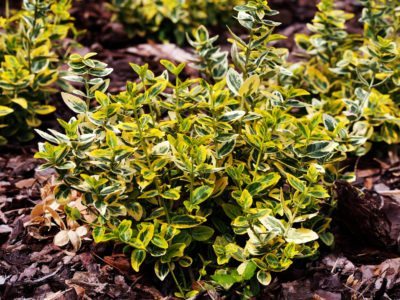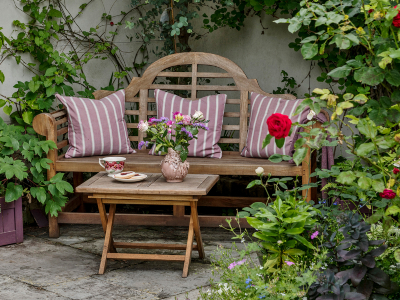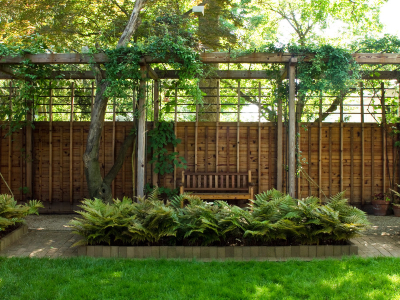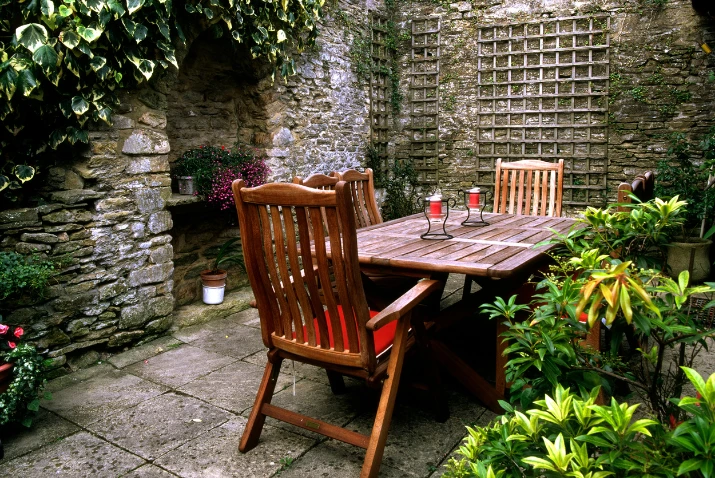While the number of bedrooms, parking availability and location of a property are all important considerations, most tenants also appreciate some outdoor space to enjoy, especially for use when the British weather treats us to some sunshine in the summer.
That said, not everyone is a budding gardener, so it's important to create a space that is both low maintenance and enjoyable.
When planning the garden of a rental property, there are two main considerations to factor in:
1. Low maintenance
2. Matching the garden to the needs of your target tenants
The first is obvious; even though you won’t be living in the property, you want the garden to be easy to maintain. This is important so it doesn’t deteriorate or become overgrown during the tenancy, leaving you with a mountain to climb before the property can be re-let – or even marketed – to new tenants.
And when it comes to matching the garden to your tenants' needs, it’s about understanding what tenants want. What kind of garden are they likely to be looking for? For example, most families want somewhere for children to play, while this is rarely a priority for young professionals or people living in a house share.
What is popular with everyone, though, is a place to sit outside and enjoy the fresh air.
Here is a list of garden features that may be worth considering for your rental property to adapt it to different types of tenants, always with the aim of keeping it attractive but low maintenance.
Young professionals

1. Hardy shrubs
Some young couples are keen gardeners but, according to research by Fiskars, people generally don’t become truly green-fingered until the age of 41. So it makes sense to keep things as low maintenance as possible in a property aimed at those in their 20s or 30s.
Hardy low-maintenance shrubs could be the answer. They look good all year round and need very little, if any, looking after. These don’t have to be boring. Consider the evergreen Euonymus, the fragrant Mahonia with its bright yellow flowers, or the resilient Photinia with its glossy red leaves. The addition of lavender will bring colour and a beautiful aroma in the summer.
2. Fences or hedges?
Hedges are a vital habitat for birds and other wildlife, but they’re not so popular with busy people if they are required to do regular trimming. If you already have hedges surrounding your rental property, potential tenants may be put off by the responsibility - so consider paying for a gardener to visit twice a year to keep them in check.
Even fences need regular treatment, but not as frequent maintenance as hedges. Applying a preservative between tenancies every couple of years could be enough to keep them looking respectable (and prolong their lifespan.

3. Seating area
Socialising is a priority for many young couples or friends, so a patio or seating area will be popular with tenants. Ideally, there'll be room for around four people to sit, so they can welcome their friends to their new home and enjoy a barbecue or drinks party.
You may wish to create a gravel garden, which creates a softer look than the hard edges of slabs. As long as this has a permeable membrane, it has an advantage over slabs in that it allows drainage, which can help to prevent flooding.
Families
1. A sizeable lawn
A lawn will usually need mowing weekly in the summer to keep it in good condition, apart from in very dry spells. However, for families, this is a small price to pay for having somewhere for children to kick a ball around, perform cartwheels or play games.
However, it is worth agreeing who is responsible for the garden’s upkeep. If you want the tenant to look after the garden, make sure a lawnmower is available.
2. Storage
Families can never have too much storage, so a shed is ideal, as this will give tenants somewhere to keep the lawnmower, bicycles, footballs, paddling pools and, in winter, garden chairs. A small shed is not too expensive and can be easy to erect; what’s more, it can be a good ‘selling point’ for potential tenants who value storage.
3. Patio
Sitting outside in the sunshine watching the children play, or enjoying a drink in the evening, is one of the pleasures of summer, so having an area such as a patio will be a popular feature of your rental property. This doesn’t need to be a major investment; well-lain slabs, for example, can be very reasonably priced and easy to fit.

4. Security and safety
Secure fences not only help to keep the property safe from intruders (particularly if there are bikes lying around), but security is a health and safety requirement to let a property. It also gives parents with young children peace of mind.
One thing you will want to avoid though is a garden pond. They may look good and attract lots of wildlife, but they are unpopular with parents, due to the risks they pose to small children.
House shares
1. Paving
If you’re running a House in Multiple Occupation (HMO), you’ll know that gardening isn’t usually a priority for young single people and students. Therefore a garden for a property of this type needs to be the most low maintenance of all. Slabs are ideal as they require minimum maintenance.
2. Communal seating
Providing some communal seating, such as picnic benches and perhaps an all-weather shelter, will make your HMO stand out from the rest. This will provide a welcome social focal point, which can help to foster a sense of community among the tenants, which could encourage them to stay longer.
3. Rubbish disposal
It’s not exactly gardening, but do consider a storage area for waste and recycling bins. Several people living under one roof will create a large amount of rubbish and recycling, so it’s important to provide somewhere to store this.
For further information on how best to create an outdoor space to appeal to your tenants, and to increase your property's exposure, call your local Leaders property experts on 033 3455 3464, or get a free rental valuation.








